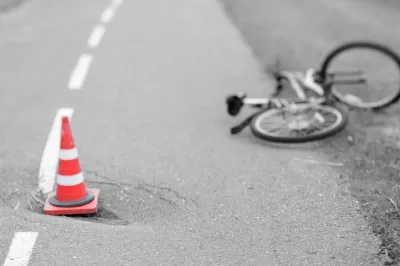Researchers warn of a “chilling environment” as studies examining road safety and other topics are killed off and layoffs hit federal agencies.

The Trump administration has wasted little time launching a multipronged assault on scientific research across an array of fields. Mass layoffs have roiled the National Science Foundation, the National Oceanic and Atmospheric Administration and the National Institutes of Health, and the administration has sought to sharply reduce the federal contribution to universities’ “research overhead,” aiming a staggering blow at US higher education.
Transportation research typically occupies a comparatively nonpartisan and uncontroversial position, but the Trump administration’s early moves have sent shock waves through the field. Federally supported projects have been canceled, experts have been fired, and datasets have disappeared. TRB, a longtime bridge between academia and government, now faces existential questions about its future. The tumult has stunned many transportation veterans, leaving them worried about the US’s ability to ensure that its mobility network — from roads, bridges and rails to maritime and aviation infrastructure — grows more productive, affordable and safe in the years ahead.
“It’s going to have a decimating effect on transportation research — at every level,” said Sandi Rosenbloom, also a planning professor at the University of Texas and a previous chair of the TRB executive committee.
National Academies and TRB did not respond to multiple requests for comment, and as of Feb. 25 the organizations have not issued any public statements about the upheaval in federal transportation research.
FULL STORY: The Trump Administration Takes Aim at Transportation Research

Alabama: Trump Terminates Settlements for Black Communities Harmed By Raw Sewage
Trump deemed the landmark civil rights agreement “illegal DEI and environmental justice policy.”

Planetizen Federal Action Tracker
A weekly monitor of how Trump’s orders and actions are impacting planners and planning in America.

The 120 Year Old Tiny Home Villages That Sheltered San Francisco’s Earthquake Refugees
More than a century ago, San Francisco mobilized to house thousands of residents displaced by the 1906 earthquake. Could their strategy offer a model for the present?

LA’s Tree Emergency Goes Beyond Vandalism
After a vandal destroyed dozens of downtown LA trees, Mayor Karen Bass vowed to replace them. Days later, she slashed the city’s tree budget.

Sacramento Leads Nation With Bus-Mounted Bike Lane Enforcement Cameras
The city is the first to use its bus-mounted traffic enforcement system to cite drivers who park or drive in bike lanes.

Seattle Voters Approve Social Housing Referendum
Voters approved a corporate tax to fund the city’s housing authority despite an opposition campaign funded by Amazon and Microsoft.
Urban Design for Planners 1: Software Tools
This six-course series explores essential urban design concepts using open source software and equips planners with the tools they need to participate fully in the urban design process.
Planning for Universal Design
Learn the tools for implementing Universal Design in planning regulations.
Ada County Highway District
Clanton & Associates, Inc.
Jessamine County Fiscal Court
Institute for Housing and Urban Development Studies (IHS)
City of Grandview
Harvard GSD Executive Education
Toledo-Lucas County Plan Commissions
Salt Lake City
NYU Wagner Graduate School of Public Service




























